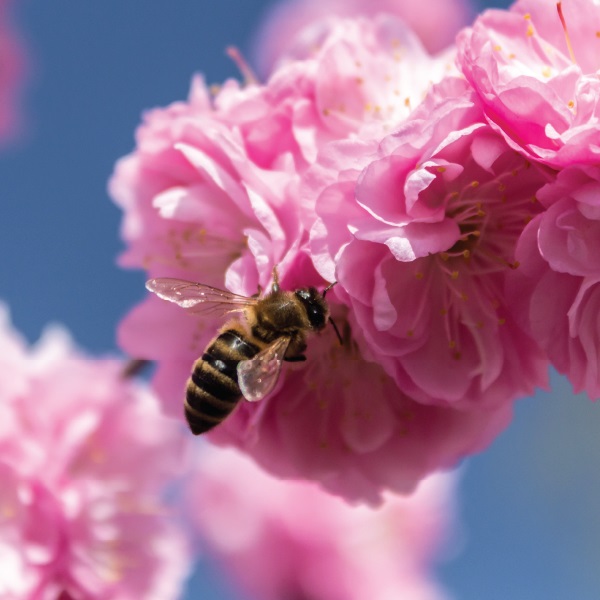
By Dominique Bastien and Emma Dickinson
This blog post was originally published to Cultivating Science on science.gc.ca.
Over time, plants can become hosts to many viruses that cause serious plant diseases. This is especially true for long-lived perennial fruit plants like apples, cherries, or blueberries. That is why it is important to rapidly detect new viruses before they can become a threat to our food production.
However, traditional screening methods – using either random plant samples or taking samples when plants already show signs of disease – often detect viruses too late. Thanks to the work of Agriculture and Agri-Food Canada (AAFC) researchers, in collaboration with scientists from the Canadian Food Inspection Agency (CFIA), a small but "busy" ally has been identified to help collect field samples. Meet the honey bee.
Taking clues from pollinator bee-haviour
As honey bees forage from flower to flower pollinating fruit crops, they come into contact with plant viruses and bring virus particles back to the hive along with the pollen. While these plant viruses do not impact the quality and safety of honey produced, taking samples from hives provides important information on plant viruses in the areas the bees have visited.
Instead of sampling individual plants across the field, scientists can take advantage of bee foraging activities and collect pollen samples from their hives. From these samples, scientists extract RNA (ribonucleic acid – a genetic component) and identify most pollen-associated or bee viruses present in the area where the bees foraged. To do this, scientists tested some cutting-edge methods including high-throughput sequencing, a powerful tool to rapidly capture large volumes of genetic data from a metagenomic sample.
Continue reading to learn more.
Get more Inspect and Protect
- Want to learn more about what we do? Explore articles, videos and podcasts.
- Interested in reporting on a story? Contact CFIA Media Relations to arrange an interview with one of our experts.
- Have an idea or feedback to share? Get in touch!